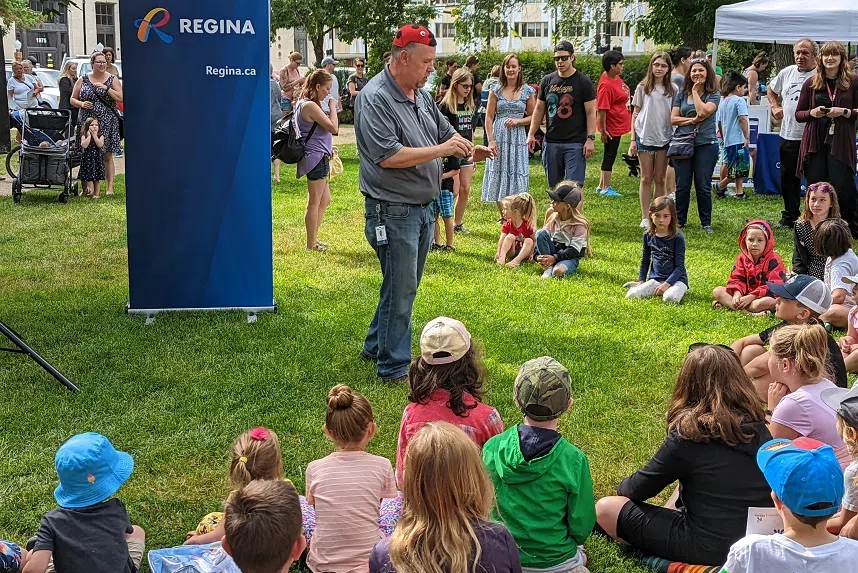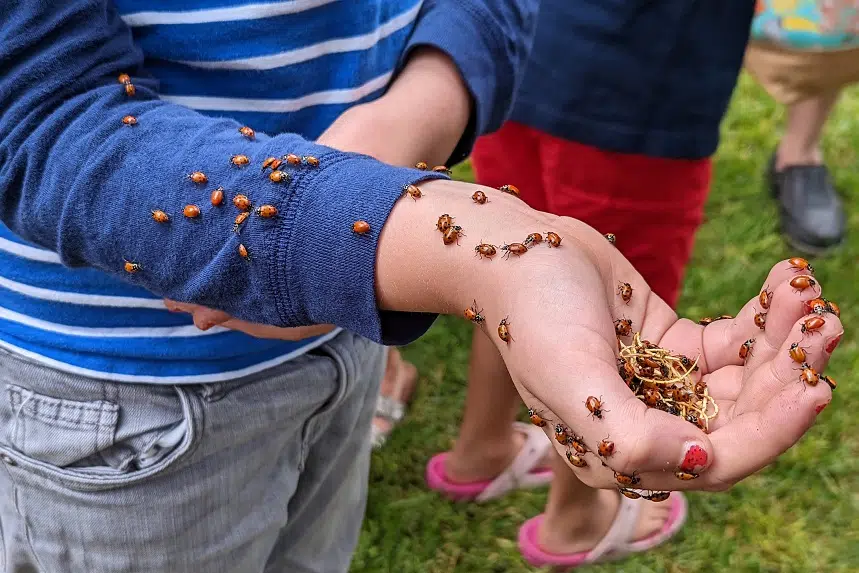The City of Regina is continuing with its plan to control the aphid population.
Aphids are known to cause that sticky residue on your car when you park underneath a tree or when you see some sticky stuff on the sidewalk.
“What it is is the aphid is actually sucking the sap out of the tree, using it for food and using it as a waste product and it becomes a honeydew,” explained Russell Eirich, the City of Regina’s manager of open space services.
The residue from the trees attract insects like ants, wasps and others the city doesn’t want.
In order to control the aphid population, the city turns to ladybugs and green lacewings to get rid of them.
On Thursday, the city held an event with plenty of families in attendance where it distributed 200,000 ladybugs and 60,000 eggs of green lacewings.
Eirich feels the event can be used as a tool to teach today’s youth about our ecosystem and the important role ladybugs and green lacewings play in it.
“Ladybugs (and green lacewings) eat aphids,” he said. “It’s a great pesticide-free way of doing it and I’m hoping this will be a teachable moment for the kids.
“The world is changing, technology is changing and awareness about environment is changing, so really it’s about the kids,” he added. “They learn it at this age. We’re under a lot of pressure to start to change our tactics in terms of pest control and these are a great biological way to do it without bringing out the big guns.”

Russell Eirich, the manager of open space services with the City of Regina, shows off some ladybugs to kids. (Logan Stein/980 CJME)
The families were able to take the bugs home and put them in their gardens so they can start working away at controlling the aphid situation.
Some kids are fans of the ladybugs and the roles they’re playing.
“I think they’re really cool. I feel like how they fly is cool (and) how they have smaller wings,” one of them said.
Another kid wasn’t a fan of the little insects.
“Sometimes when you’re holding them, they start peeing or pooping on you. They squirm around a lot and I don’t really like that either. Last year, they crawled all over my sister,” the girl said.
While some kids have mixed feelings about the bugs, Eirich suggests they’re doing a lot of important work.
“There are good insects (and) bad insects. Some help us and some not so much and this is just a great way to talk about,” he added.
The program has been in place in the city since 2017 and Eirich says it continues to grow every year. It’s the first time the city has been able to bring families together for the event since 2019.
— With files from 980 CJME’s Logan Stein











